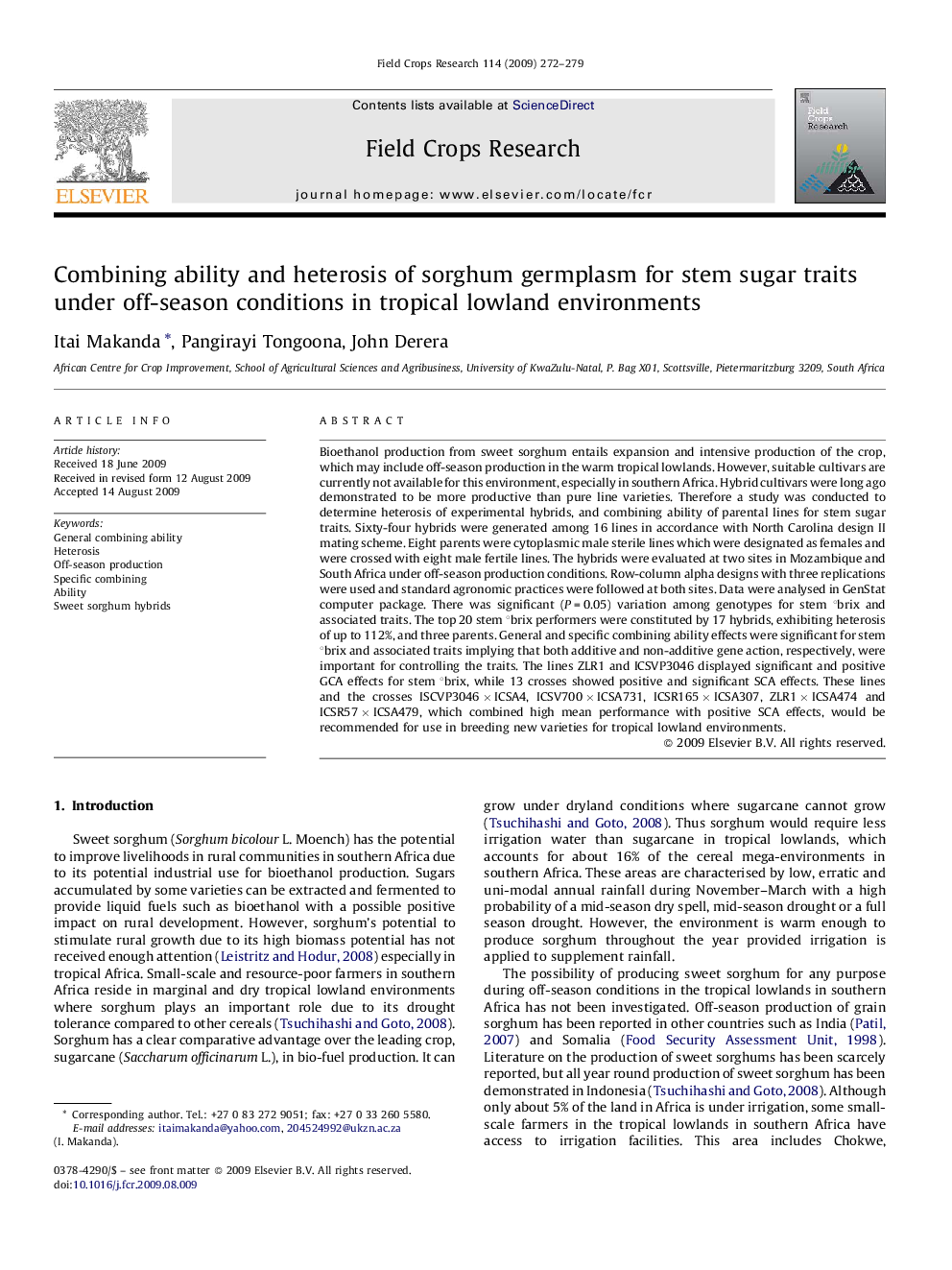| Article ID | Journal | Published Year | Pages | File Type |
|---|---|---|---|---|
| 4511117 | Field Crops Research | 2009 | 8 Pages |
Abstract
Bioethanol production from sweet sorghum entails expansion and intensive production of the crop, which may include off-season production in the warm tropical lowlands. However, suitable cultivars are currently not available for this environment, especially in southern Africa. Hybrid cultivars were long ago demonstrated to be more productive than pure line varieties. Therefore a study was conducted to determine heterosis of experimental hybrids, and combining ability of parental lines for stem sugar traits. Sixty-four hybrids were generated among 16 lines in accordance with North Carolina design II mating scheme. Eight parents were cytoplasmic male sterile lines which were designated as females and were crossed with eight male fertile lines. The hybrids were evaluated at two sites in Mozambique and South Africa under off-season production conditions. Row-column alpha designs with three replications were used and standard agronomic practices were followed at both sites. Data were analysed in GenStat computer package. There was significant (P = 0.05) variation among genotypes for stem °brix and associated traits. The top 20 stem °brix performers were constituted by 17 hybrids, exhibiting heterosis of up to 112%, and three parents. General and specific combining ability effects were significant for stem °brix and associated traits implying that both additive and non-additive gene action, respectively, were important for controlling the traits. The lines ZLR1 and ICSVP3046 displayed significant and positive GCA effects for stem °brix, while 13 crosses showed positive and significant SCA effects. These lines and the crosses ISCVP3046 Ã ICSA4, ICSV700 Ã ICSA731, ICSR165 Ã ICSA307, ZLR1 Ã ICSA474 and ICSR57 Ã ICSA479, which combined high mean performance with positive SCA effects, would be recommended for use in breeding new varieties for tropical lowland environments.
Related Topics
Life Sciences
Agricultural and Biological Sciences
Agronomy and Crop Science
Authors
Itai Makanda, Pangirayi Tongoona, John Derera,
